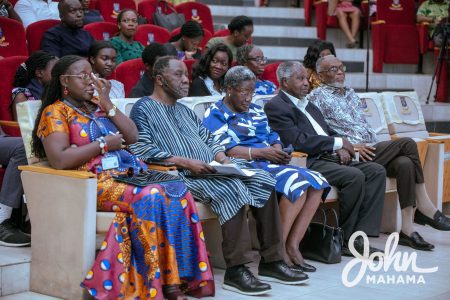The Founder and President of the Africa Centre for Economic Transformation (ACET) , Dr Kingsley Y. Amoako, has stressed the need for the establishment of a 25 years plan of action backed by national development consensus, that will direct the course of Ghana’s development in the second quarter of this century.
25 years plan
These next 25 years, he believes, are absolutely critical to Ghana’s ability to secure its future.
This consensus, unlike its predecessor, the Senchi Consensus, must be of national character and encompass the views of as wide a scope of Ghanaians as possible, across political, social, economic, religious and class divides to ensure its that it’s more widely and sustainably adopted than the Senchi version did.
Dr Amoako who was speaking at the second K. B. Amissah-Arthur Forum on the theme, ‘Economic Policy Making: Lessons Learnt and the Way Forward,’ said, “We came out of Senchi with a consensus, but only among a privileged few, without enough buy-in from all political parties. So the conversations and the agreements we made ended up as a footnote in history rather than a long-term strategy.”
He continued, “Another consensus is needed, but this time, it needs to be a true national consensus—broader, with more stakeholder input and buy-in, especially among the youth, women, and civic associations.”
He noted that despite the rapid growth that Ghana has experienced over the course of the last couple of decades, it has unfortunately not translated into sustained development.
The need for this new developmental consensus, he holds is urgent, considering that the stakes are higher now than they have ever been.
The Founding President of ACET said, “political polarization is worse. Civic disengagement is higher. Ghana must not only solve its economic problems to enable transformation, it must also safeguard its democratic traditions and institutions.”
He therefore said that ACET has come up with a new plan of action called the Compact for Ghana’s Political and Economic Transformation. And through which is working to build the true national consensus that is so urgently needed.
He stated, “the Ghana Compact aims to frame the future we want for Ghana by 2050, a 25 years plan. It is a platform for setting a shared vision for our nation that will tackle our greatest challenges.
“It is intended to put Ghana on a more secure path forward by bringing a better balance to our democratic process and more voices into our policy discussions.”
Dr Amoako explained further that the “core belief with the Compact is this: for Ghana to truly deliver on its ambitions and achieve its greatest potential, we need to build a social contract between our citizens and our government— no matter who is in charge—to set a long-term vision for economic transformation that delivers dividends for our people.”
The Compact, he averred, will bringing ordinary citizens into the discourse and discussions so that the initiative is informed first and foremost by the will and aspirations of the people of Ghana, and not from the top down.
It will also engage the youth on the issues that will define their lives and build consensus among a wide and varied group of stakeholders, from industry associations and trade unions, to civil society and the leadership of Parliament.
He was optimistic that the Compact will finally resolve the historical constraints to fiscal health, while safeguarding our democracy and put Ghana on a sustainable pathway to economic transformation and sustainable, inclusive growth.
To ensure that the next quarter century does not go to waste, he indicated that ACET is working closely with a network of most of the major think tanks and policy institutes to supply this initiative with an empirical foundation.
He stated that more than a half dozen research papers have been produced so far, with more citizen dialogues and engagements planned, together with a national mobilization campaign to ensure buy-in.
- Friday, May 9, 2025 Newspaper Headlines - 9 May 2025
- Adangabey brightens rural kids’ future from his wheelchair - 9 May 2025
- Stanbic donates ICT equipment to UHAS for digital learning - 9 May 2025

